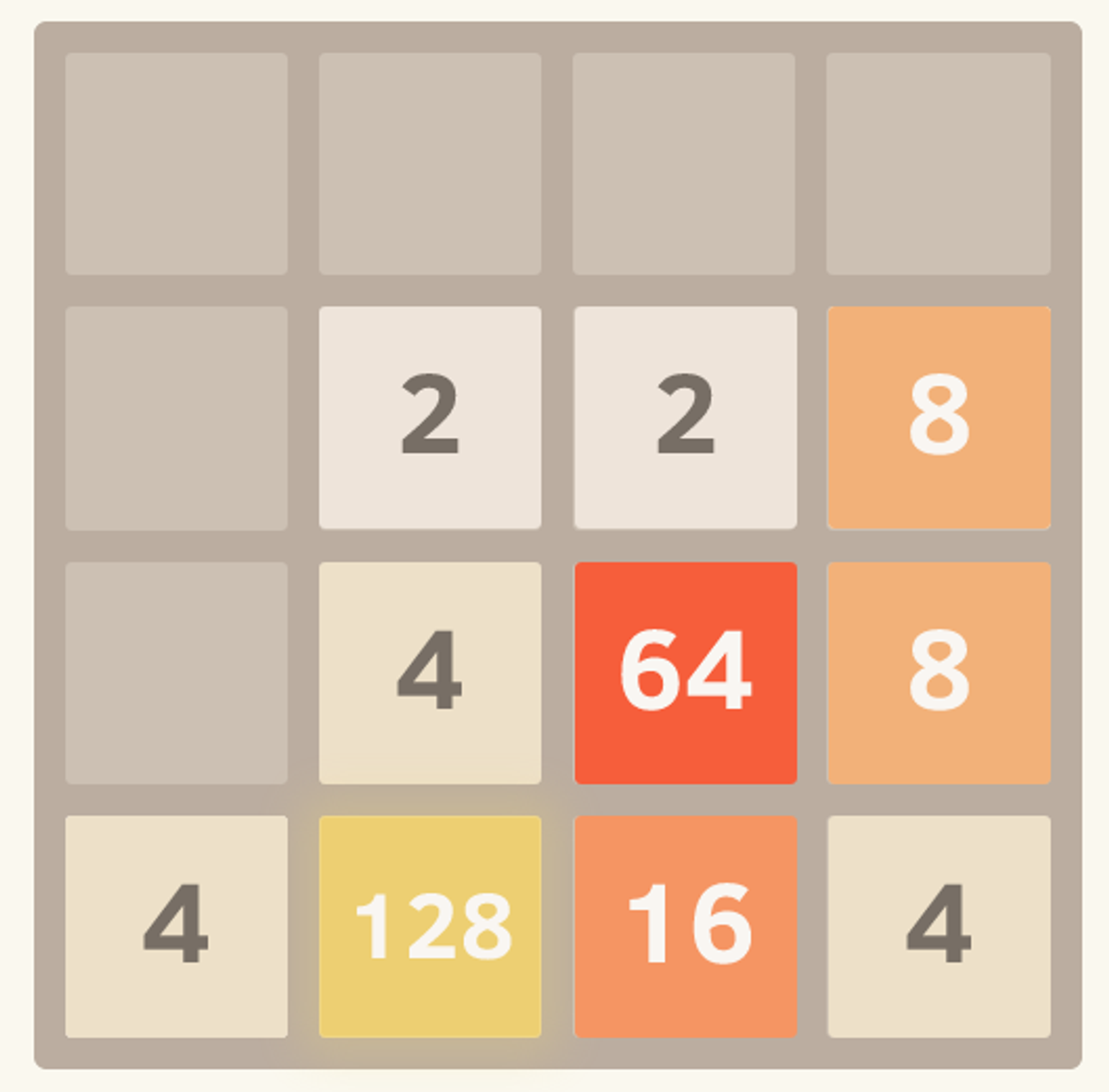An insidious productivity-destroying monster is rampaging across the Internet. It's called "2048" and it is a game. The simplest of games, really: a sliding puzzle in which a player matches numbers (all powers of 2) in an effort to swipe his or her way up to a total of 2048.
After hearing about it from my son over the weekend and then promptly noticing despairing tweets and Facebook posts by friends and colleagues who had been sucked into its all-conquering maw, I was naturally curious. What made this puzzle game so special?
Some of its attributes were obvious: "2048" is free to play. You don't even have to download an app. And unlike "Candy Crush," there is no in-game micro-transaction arm-twisting. There aren't even any ads! Just head to the website and start swiping. You may find it difficult to stop. "2048" is game-play distraction distilled to its purest level.
It is also, apparently, a "rip-off," a moderately tweaked version of another puzzle game called "Threes" that was released in January but has had nowhere near the level of viral success of its copycat. You can read an eloquent, mildly anguished meditation on the sad realities of copycat gaming by the developers who labored for a year to create "Threes" right here. You can also visit Google Play or the Apple App Store and discover that there are now dozens of copycat versions of "2048" as well.
I'm not sure how the 19-year-old developer, Gabriele Cirulli, needed only a weekend to whip off a game that "Threes" developers say required 14 months. I'm also skeptical as to exactly how much originality "Threes" can claim. Sliding number puzzles have been around since the 19th century -- indeed, the inventor of ever-popular-Christmas stocking stuffer "15 Puzzle" was denied a patent for his version more than a hundred years ago on the grounds that it lacked originality. Still, I can appreciate the disappointing of "Threes" camp. It's gotta suck to try and make money off a game ("Threes" costs $1.99) and then watch in stunned amazement as an almost identical game is distributed for free and completely destroys your market.
But this is how the world works. Software is too easy to copy, ideas are too easy to modify slightly, and a world of computer jockeys craving momentary nullification of the pains of earthly existence are too ready to latch on to whatever comes slithering on to their phone or tablet. In this world of endlessly free divertissement, just charging $1.99 already creates a huge obstacle to success.
In fact, the existence of something like "2048" is why we have things like "Candy Crush" -- a game that extracts real money from its users with the gameplay equivalent of water torture. You can't make money charging for downloads. You have to find other ways. And those ways won't be nice. They will be manipulative and underhanded.
Copycat culture is why we can't have nice things. The developers of "Threes" seem like nice guys. But they're going to have become Candy Crush sharks to make all their labor pay the rent.

Shares